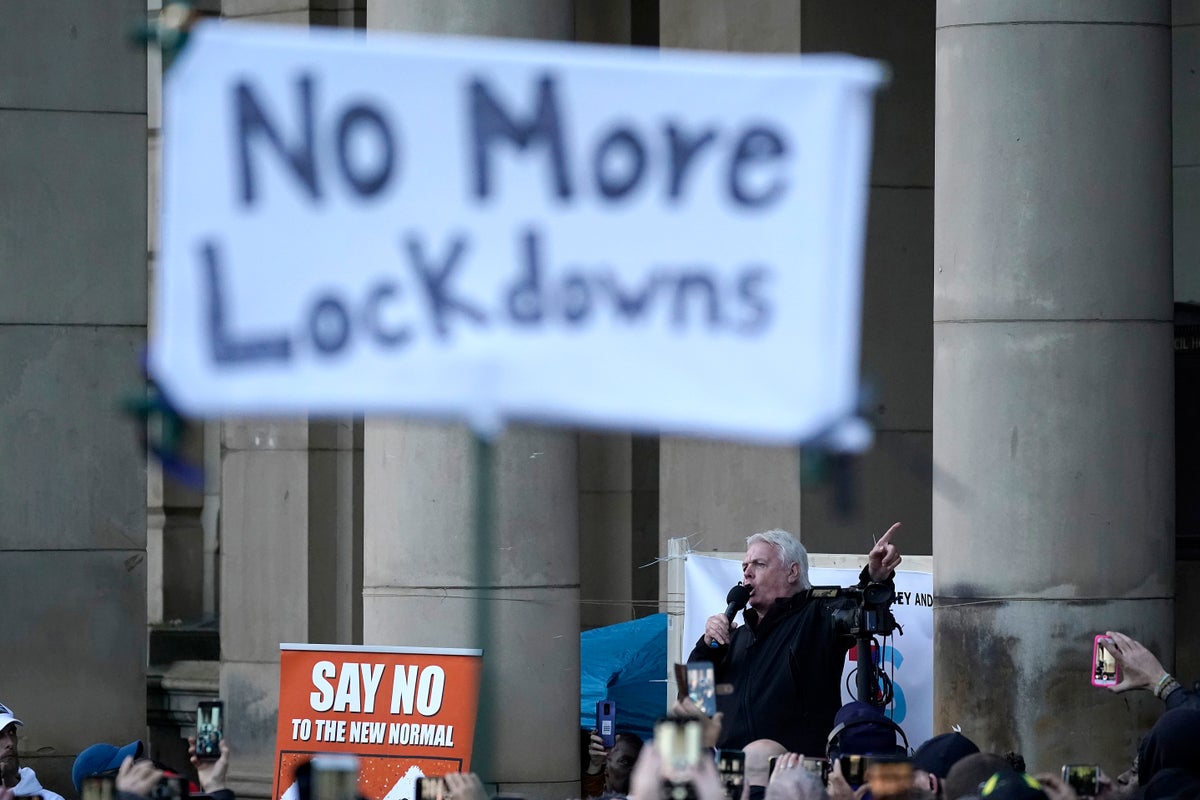
The government had a secret unit that worked with social media companies to monitor and prevent speech that was critical of Covid lockdown policies, it has been revealed.
The Counter-Disinformation Unit (CDU) was set up by ministers to deal with individuals or groups who criticised policies such as the mass vaccination of children or lockdowns during the pandemic.
Critics of government policies were routinely monitored and an AI firm was used to search social media posts, according to FOI and data protection requests reported by The Daily Telegraph.
Campaigners have described the revelations as “truly chilling” and Jacob Rees-Mogg has called for the Covid inquiry to investigate the claims, the newspaper said.
“The inquiry clearly ought to investigate the oppressive methods used to override dissent,” he said.
Silkie Carlo, director of Big Brother Watch, said: “The very concept of ‘wrong information’ dictated by a central authority is open to abuse and should be considered far more critically, lest we mirror Chinese-style censorship.”
Large parts of the government’s work on disinformation during Covid is still redacted but the papers do reveal that Professor Carl Heneghan, an Oxford epidemiologist who has advised Boris Johnson, was monitored by disinformation units.
Dr Alexandre de Figueiredo, a research fellow at the London School of Hygiene and Tropical Medicine (LSHTM) and Molly Kinsgley who set up a campaign to keep schools open during the pandemic and spoke out against facemasks, had their activity monitored.
The CDU is still operating from the Department for Culture, Media and Sport (DCMS) and is able to get content fast-tracked for possible moderation or deletion by social media firms such as Facebook and Twitter.
It was started in 2019 to mostly deal with the European elections but shifted focus to the pandemic.
Alongside this, the government also ran a Counter-Disinformation Policy Forum which brought together tech giants such as Facebook and Google to discuss how to deal with Covid disinformation.
The revelations come as Boris Johnson said he will send “all unredacted WhatsApps” directly to the Covid-19 inquiry ahead of a legal clash between the probe and the Cabinet Office over access to the messages.
The former prime minister told the inquiry’s chairwoman Baroness Hallett he would “like to do the same” with messages that are on an old mobile phone he stopped using due to security concerns.
In other developments, ministers are preparing for a high-profile legal battle with the inquiry as the government seeks to challenge the request for Mr Johnson’s unredacted WhatsApp messages and notebooks to be submitted.
A Government spokesperson said: “The unit’s purpose is to track narratives and trends using publicly available information online to protect public health and national security.
“It has never tracked the activity of individuals and has a blanket ban on referring journalists and MPs to social media platforms. None of the people named in this report were ever referred to social media platforms by the Government and any claim otherwise is objectively false.”







